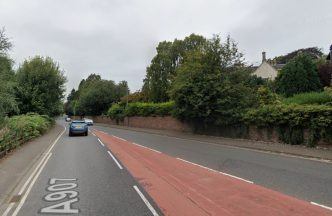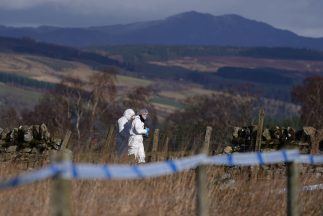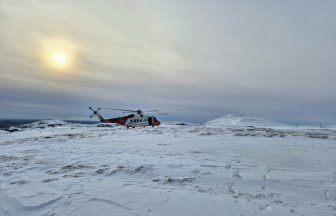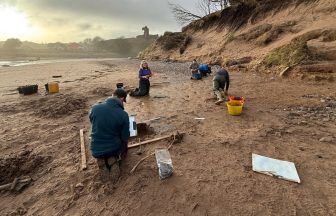A train derailed near Stonehaven last year after colliding with stones washed out onto the track from the gravel-filled crest drain and from the adjacent ground, the Rail Accident Investigation Branch (RAIB) has said.
An interim report by the RAIB released on Monday said verified pre-accident inspections had found no track defects in the area.
The RAIB also said it had not found any evidence of a train fault that could have played a part in its derailment.
Three men died when a ScotRail train struck a landslip and came off the tracks at a bridge in Carmont, near Stonehaven, on August 12, 2020.
Driver Brett McCullough, conductor Donald Dinnie and passenger Christopher Stuchbury were killed when the 6.38am Aberdeen-Glasgow service derailed.
Six other people were injured.
 STV News
STV NewsThe RAIB report also focused on drain inspection work in the area, concluding there is no evidence that part of a drainage system built at the location of the Stonehaven rail crash was inspected between its construction in 2012 and the fatal accident in August 2020.
A slope next to the crash site already had a “history of landslips and rockfalls” including an incident in 1915 which also led to a derailment, the report said.
This led to Network Rail commissioning Carillion Construction Ltd – which has since collapsed – to design and construct a new drainage system.
The work was completed in 2012, but only the section closest to the track was listed on Network Rail’s drain maintenance database.
The RAIB said it has found “no evidence” the drain was inspected before the crash, apart from the section closest to the track.
It added that the design and construction of the drain, plus the “intended and actual” inspection processes, are among the main areas it considered as part of its investigation.
The report said there was “near-continuous heavy rain” in the area between around 5.50am and 9am on the day of the crash, which caused “significant flooding”.
The 51.5mm of rain that fell in this period was almost 75% of the monthly total in Aberdeenshire in an average August.
But it was “dry and sunny” when the derailment happened at 9.37am.
Survivors of the derailment have launched legal action as they continue to seek answers over the cause of the fatal crash, which caused extensive damage to the tracks, bridge, embankment and drainage systems at the site in Carmont.
The railway line between Aberdeen and Dundee reopened in early November, 2020, after being closed for almost three months.
ASLEF, the train drivers’ union, welcomed Monday’s interim report into the accident, which it said had cast a long shadow across Britain’s railway industry.
Kevin Lindsay, ASLEF’s organiser in Scotland, said: ‘Blame for the accident has been laid firmly at the door of Network Rail for failing to maintain the area around the track. It was the landslip – the debris washed onto the track – which caused the train to derail, with the subsequent loss of life, injuries, and catastrophic consequences.
“We are urging Network Rail to examine every mile of track for which it is responsible, to ensure something like this can never happen again.”
Meanwhile, the National Union of Rail, Maritime and Transport Workers (RMT), said it believes the RAIB “seems to be taking Network Rail’s commitments on expertise at face value”.
RMT General Secretary Mick Cash said: “The tragic loss of life and damage at Carmont sets out that there are clear deficiencies in Network Rail’s approach to the effects of severe weather and its effects on the ageing rail infrastructure.
“Network Rail must learn from this incident and take the necessary steps to ensure that they are preventing incidents from happening.
“That means a robust and regular inspection, maintenance and improvement programme that means our railway infrastructure is fit for a future where extreme weather may become more regular and more challenging. We need a well-maintained railway that will need a hands-on approach to maintenance and improvements and not just leaving matters to predictions and forecasts.”
UK transport secretary Grant Shapps said the RAIB has been conducting “extensive work” during its investigation, adding: “I look forward to receiving the full findings in due course, to ensure lessons are learned from this tragedy.”
Follow STV News on WhatsApp
Scan the QR code on your mobile device for all the latest news from around the country


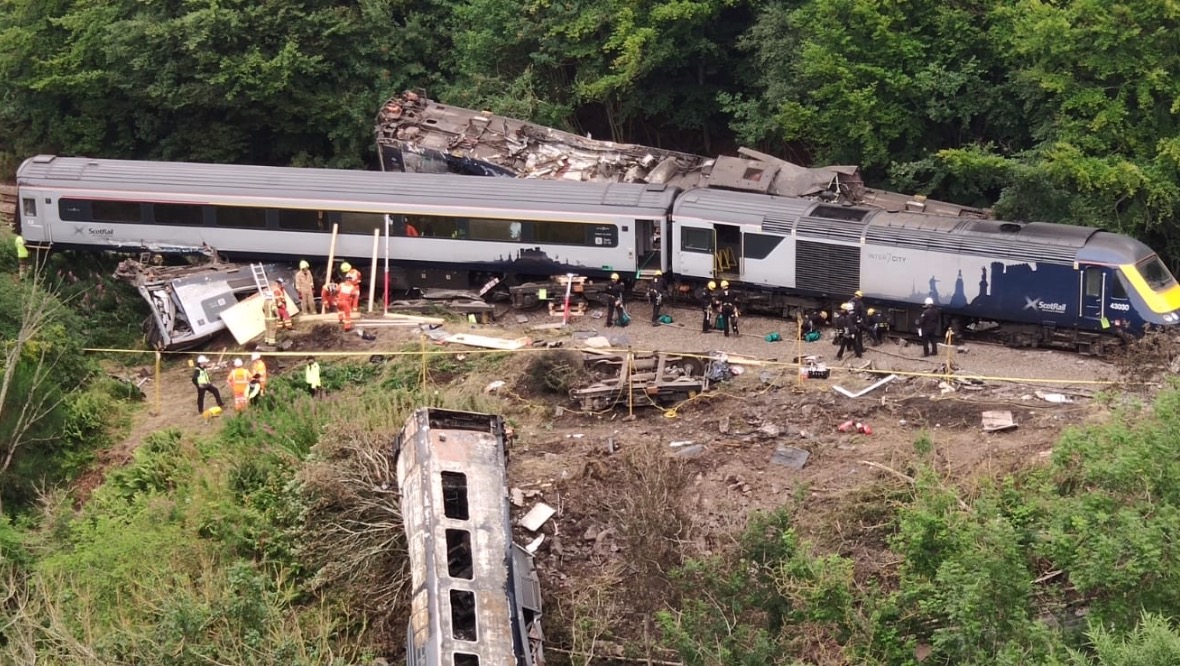 STV News
STV News







